Having a pool often leads to the desire to surround it with trees in order to provide shade in the surrounding area.
While the aesthetics of trees near the pool are unmistakable, the risks might outweigh the benefits. This is especially true of some trees with a robust root system or those that are considered invasive.
The following list includes 26 of the worst trees you could plant near the pool and why you should avoid them at all costs.
1. Mulberry
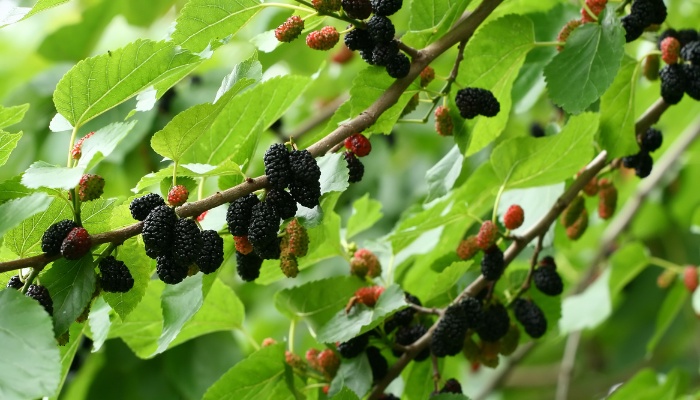
- Roots: The root system of the mulberry has been known to ruin plumbing and underground structures.
- Berries: The mulberry berries are quite messy when they fall to the ground, deck, or patio. You’ll be fishing them out of the pool all the time.
- Bugs: Mulberry trees attract silkworms and other bugs that fill the air and become a nuisance when lounging near the pool.
2. Pines
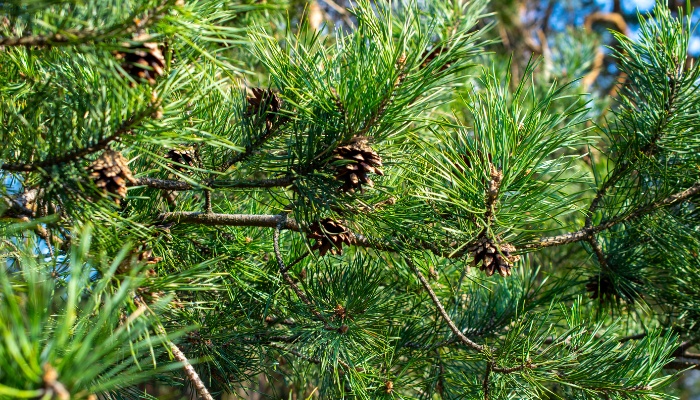
- Needles: Pine needles would make you think twice before building a pool near the tree or planting one in the vicinity. Cleaning the pool will become a headache, and stepping on a pine cone while barefoot is no fun.
- Breakage: Pine branches break rather easily and can be a hazard for anyone in or near the pool.
3. Crape Myrtle
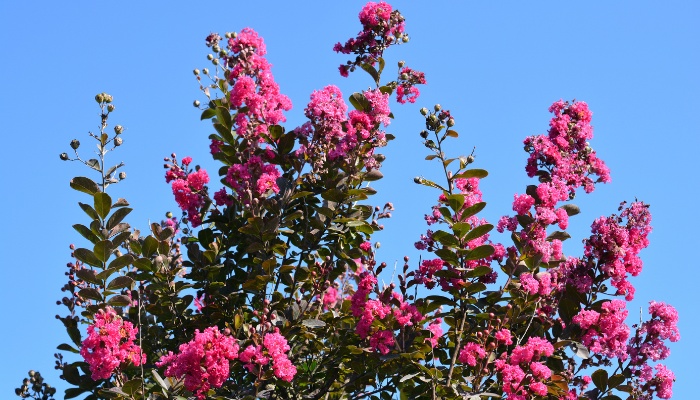
- Flowers: The flowers of crape myrtle are not good for a pool. They’re small enough to pass through the filter and clog the pipes. Additionally, cleaning the pool can be an issue since automatic pool cleaners miss the small flowers.
4. Willow
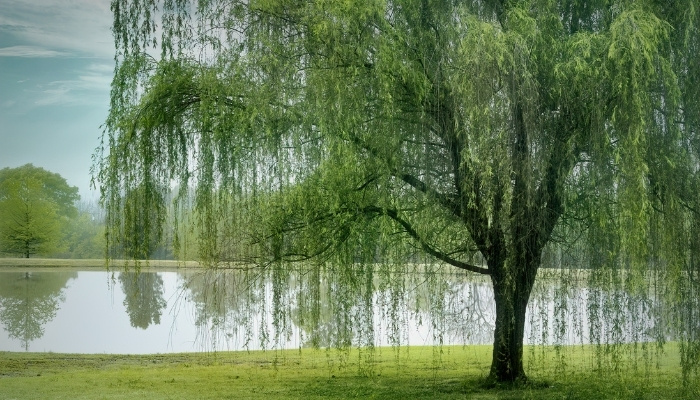
- Insects: Pest infestations are a common issue with the willow tree. Having a water source like the pool near the tree is an added attraction to the bugs.
- Roots: The willows’ roots search for water sources all the time. Eventually, they’ll break through the pool structure underground and cause a lot of damage.
5. Cottonwood
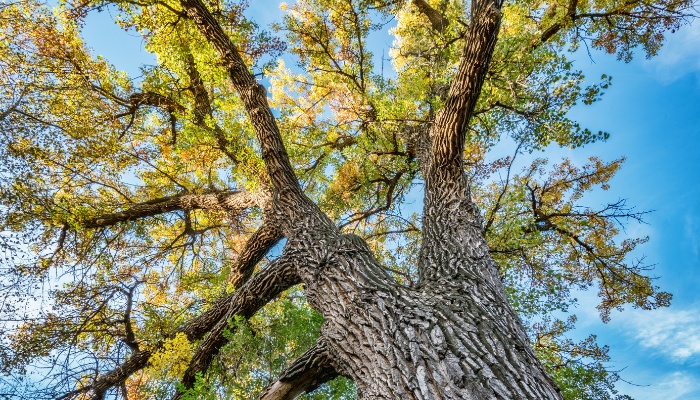
- Seeds: The cottony seeds of the tree tend to blow in the water and cover the pool with a thick layer of wet cotton — not the easiest thing to clean especially when the skimmer is clogged with the seeds.
- Roots: You shouldn’t plant cottonwood trees near the pool for the same reasons you should keep them away from walls, fences, and the curb. Their roots are shallow and cause damage to the surface and any nearby structures.
6. Aspen
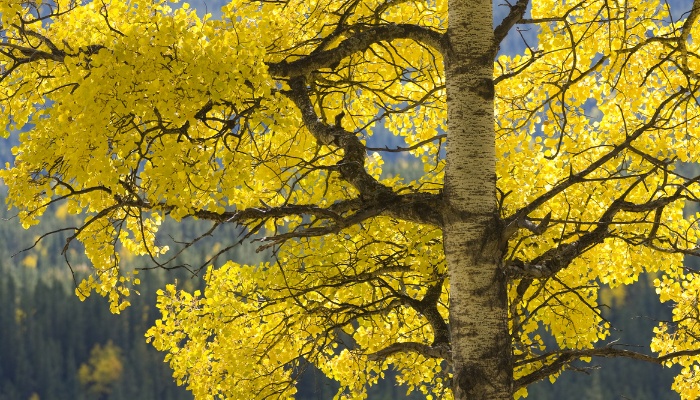
- Roots: Aspen roots create a vast network underground. They also gravitate toward the water and can put pressure on the underground structure of the pool and even pop up near the surface creating bumps in the landscape.
7. Oak
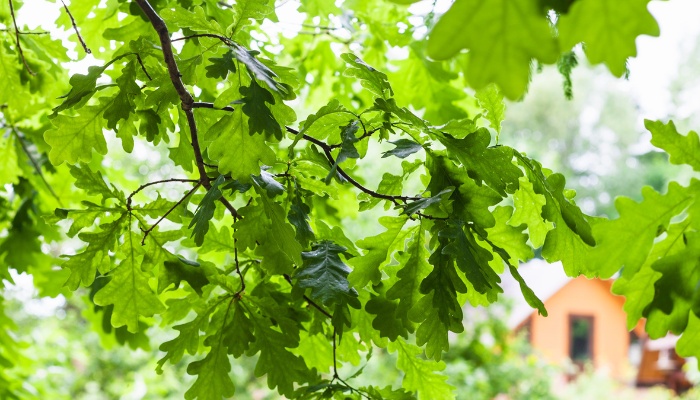
- Leaves: The mighty oak sheds a ton of leaves every year. Most of these leaves will end up floating in the swimming pool, and some will sink to the bottom. Either way, getting rid of them is a full-time job and is not just limited to windy days.
- Roots: The oak has a well-developed root system to support its height and width. Planting the tree near the pool can cause a lot of damage to the pool and underground pipes.
8. American Elm
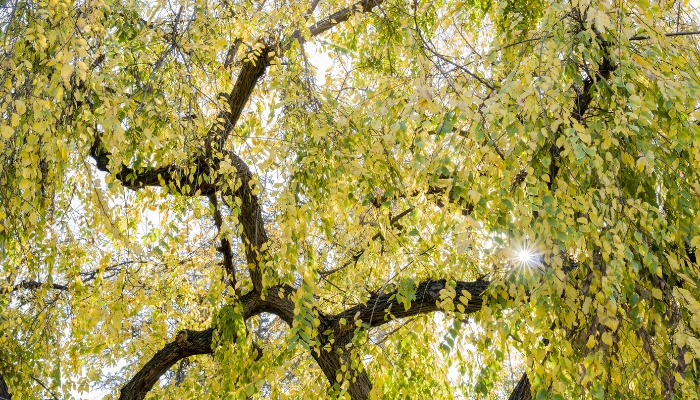
- Roots: Another tree to avoid planting near the pool because of its robust root system and the aggressive way the roots spread out and damage any structure that comes in their way.
9. Ash
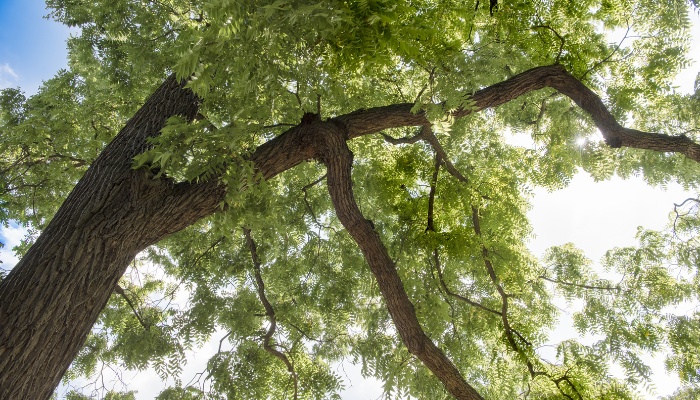
- Roots: Ash trees are quite deceptive. They’re not terribly wide, but their root system spreads out underground way past the tree’s drip line, damaging anything in their path. The autumn leaf drop will make a mess too.
10. Bradford Pear
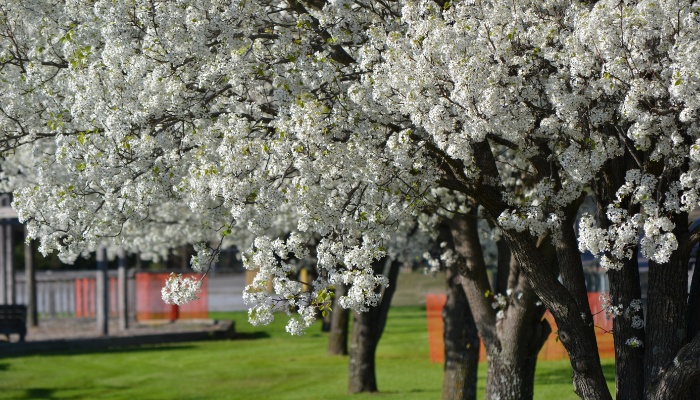
- Breakage: The Bradford Pear tree has a pyramidal shape that gives it a fragile structure. The branches are prone to breaking regularly, which can make swimming in the pool a real hazard.
- Flowers: The flowers of the tree have a very strong and pungent odor. It might chase pests away, but it will also keep anyone from getting near the pool during the bloom season.
11. Walnut
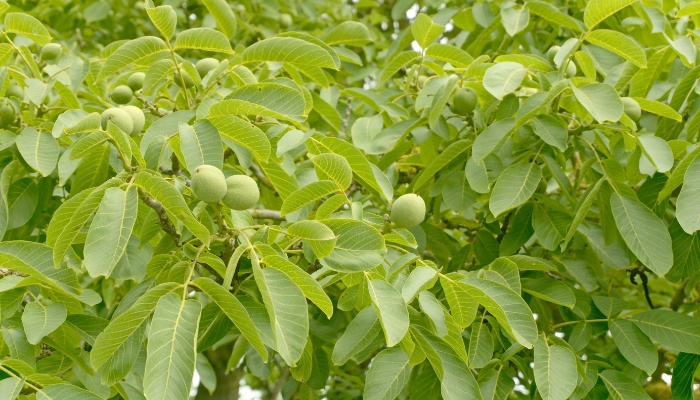
- Nuts: The walnut nuts will either float or sink. If they float, you’ll have to skim them manually to keep the water clean. As for the ones that sink, they will pass the skimmer and clog the filter. They might also rot and cause mold buildup in the filter.
12. Poplar
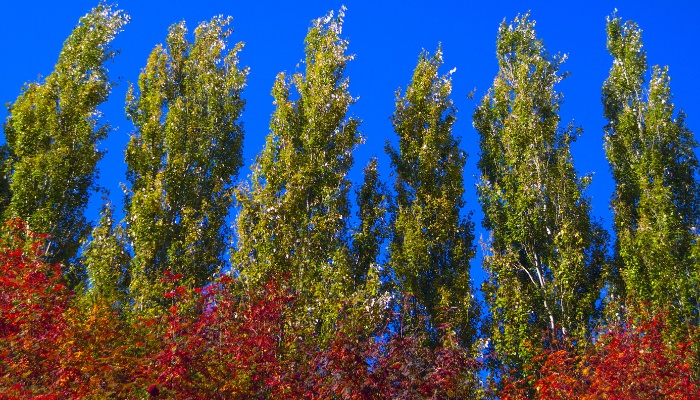
- Roots: To support that massive height, the poplar tree needs a root system to match. What makes this tree even more undesirable near pools is its fast growth rate. The root ball develops fast and keeps growing until the tree matures.
13. Eucalyptus
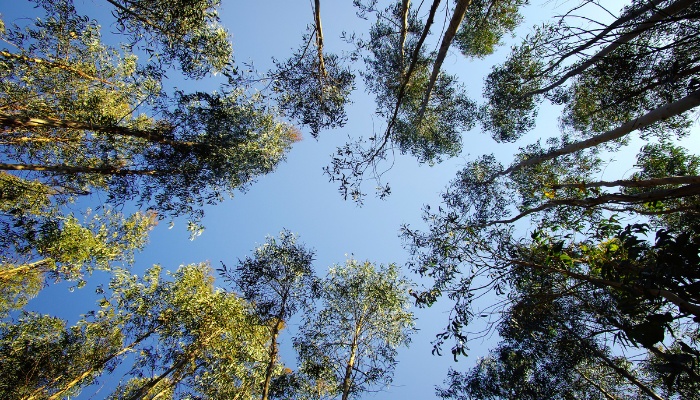
- Bark: One of the few trees that shed their bark on a regular basis. The debris that comes from a mature eucalyptus tree fills up any mid-size swimming pool and makes cleaning it a big undertaking.
- Flowers: Another reason to keep the eucalyptus tree away from pools is the flowers. The spent flowers drop to the ground and decay quickly, leaving behind rust stains that are hard to remove.
14. Birch
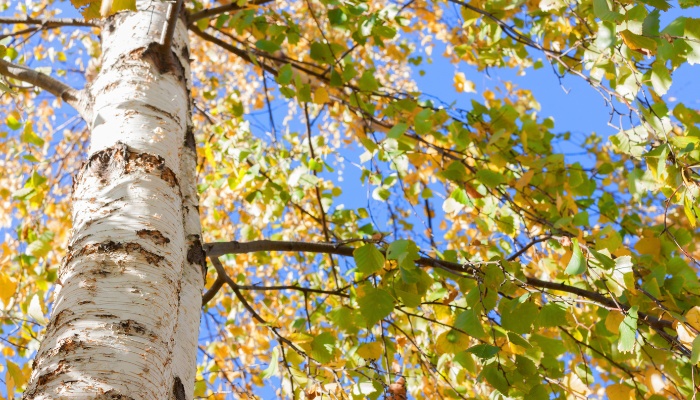
- Sap: Birch trees ooze sap regularly The sticky stuff oozes into the water making it unhealthy to swim. It also sticks to tiles and smooth surfaces.
- Branches: Birch branches are quite fragile. The large branches break in strong winds while a breeze will dislodge the small ones.
- Roots: The invasive roots stop at nothing to expand and chase moisture and nutrients in the soil. They damage concrete and underground pipes.
- Leaves: Finally, you’ll have to deal with a bunch of leaves floating in the pool every time the wind blows.
15. Tulip Tree
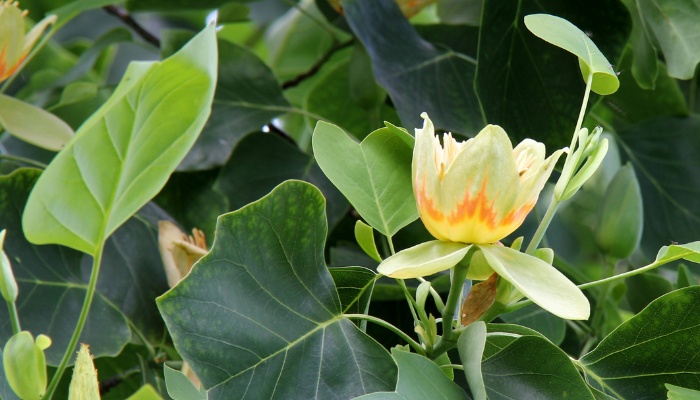
- Bark: The bark of the tulip tree tends to crack open and fall on its own.
- Flowers: The flowers bloom in the spring but fade quickly and fall, covering the surface under the tree with a thick blanket. Most of these flowers will end up in the pool.
- Leaves: In the fall, the tree sheds all the leaves in a matter of days. Fishing those leaves out of the pool is no small feat.
16. Leyland Cypress
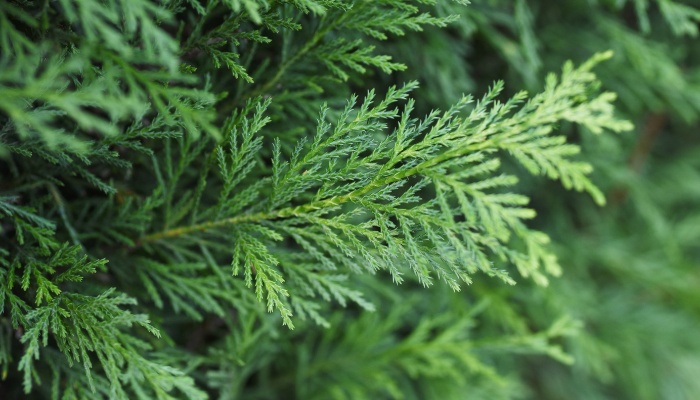
- Branches: These trees tend to get large, and the branches grow to monstrous sizes, but they also tend to break in storms and can cause damage to the pool.
17. Maple
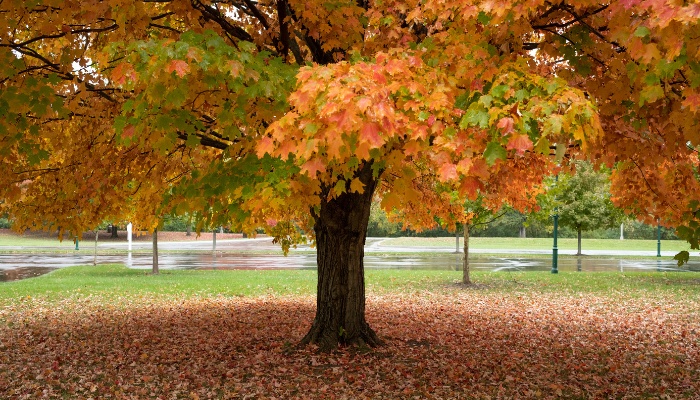
- Roots: The root system of the maple is quite shallow and hides a few inches under the surface of the soil. It expands horizontally rather than vertically, which causes damage to in-ground pools and the pipe systems nearby.
18. Mimosa
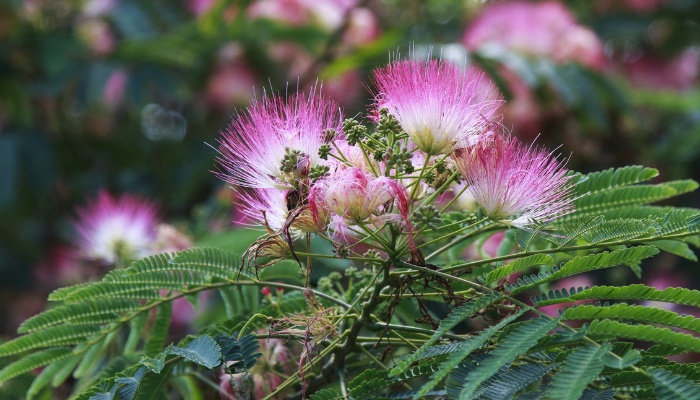
- Roots: This is another tree to keep as far away from your pool as possible. Its invasive roots damage the concrete and sometimes form gnarly obstacles that ruin the landscape.
19. Acacia
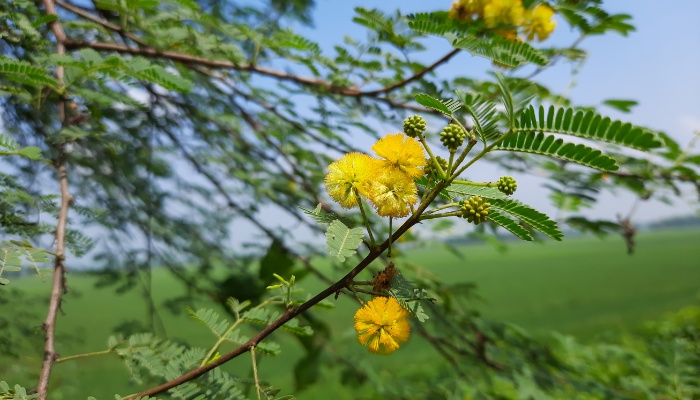
- Flowers: The small flowers of the acacia grow in clusters and drop quickly at the slightest breeze. You’ll have to skim these flowers off the water in the pool during the spring.
- Thorns: Although they serve a purpose, thorns are not exactly desirable in a pool setting.
20. Ginkgo Biloba
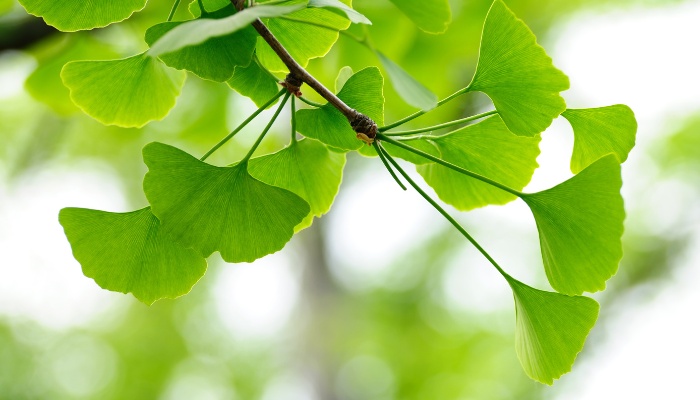
- Fruits: The ripe fruits drop from the tree and splatter all over the poolside and float in the water. They also have a bad smell that makes spending time in or around the pool more than an inconvenience.
21. Holly
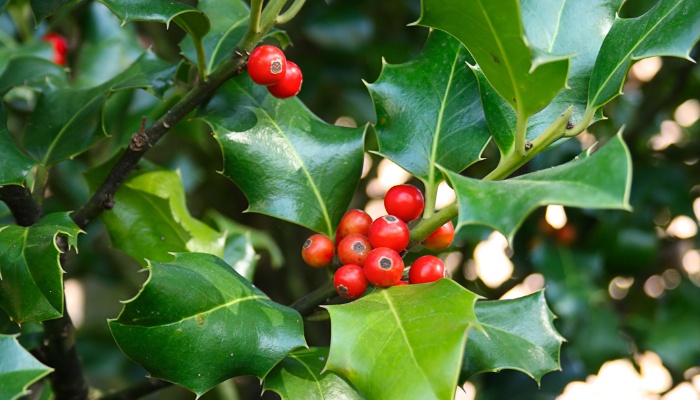
- Berries: You wouldn’t want to fish berries off the pool in the late summer and early fall every year.
- Thorns: The thorny tree has no place near the pool or anywhere that people can come into contact with its sharp thorns.
22. Apple
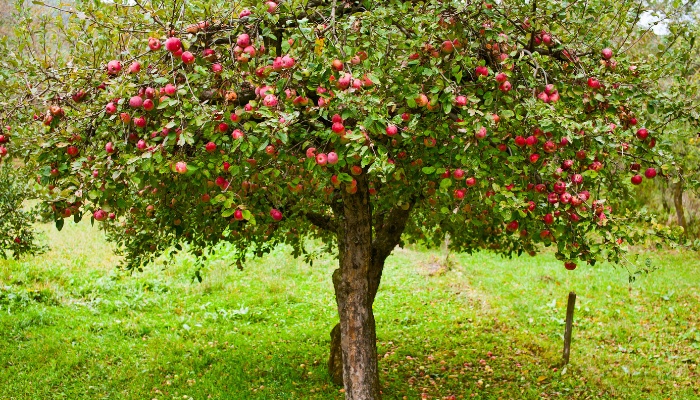
- Insects: The apple tree is a magnet for a wide variety of bugs. Having water in the vicinity can only encourage the pests to breed and become a nuisance.
- Leaves: The leaves of the tree are large and can clog the pool in the fall.
23. Peach and Nectarine
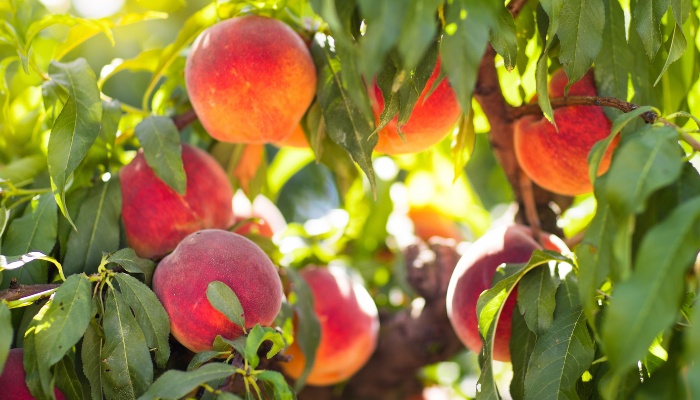
- Pests: As with many fruit trees, peach and nectarine trees attract a lot of pests throughout the year. They also attract birds that feed on the fruits which can make the pool area bustling with unwanted visitors.
- Flowers: You’ll be collecting a lot of flowers off the water.
24. Plum
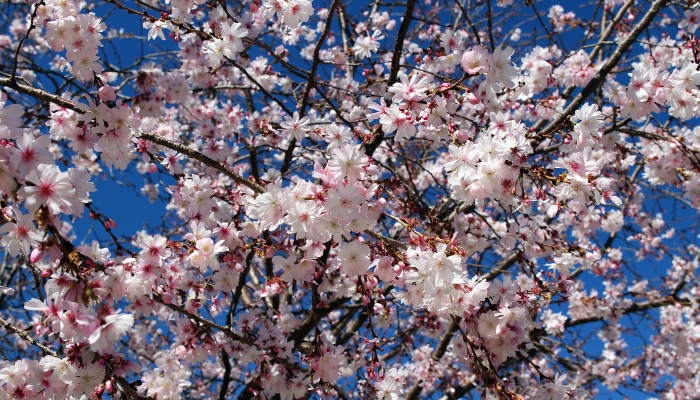
- Flowers: The spent flowers drop in the pool and clog the filters.
- Insects: The fruits attract insects and wildlife, especially when dropped fruit is left on the ground.
25. Cherry
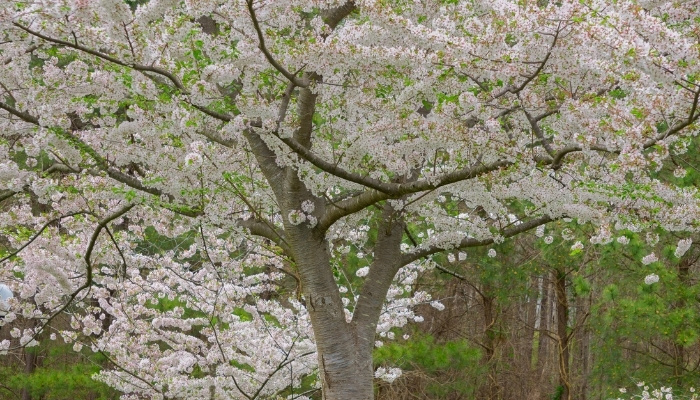
- Flowers: The light flowers float with the wind and drop in the pool in the spring.
- Fruits: The fruits are favored by birds and bugs.
- Roots: The roots grow close to soil surface and spread aggressively. They can damage pipes and the pool if planted in the area.
26. Sweet Gum
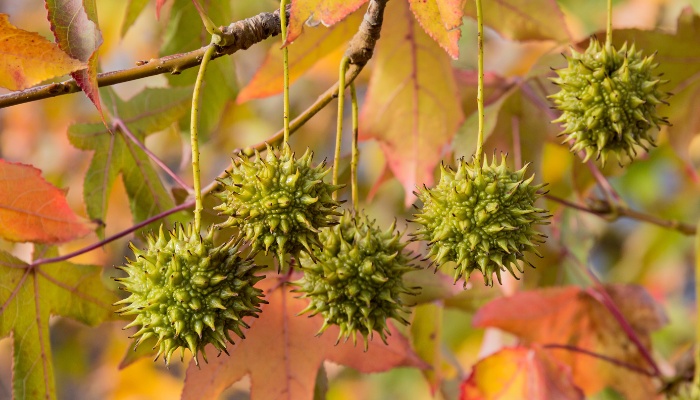
- Sap: The sap of the tree oozes on surfaces and becomes hard to remove. It also causes fungal buildup.
- Seed pods: The tree produces lots of spiny balls that litter the ground in autumn and are quite painful to step on when barefoot.
Closing Thoughts
While trees can create an idyllic atmosphere around the pool area, not all trees are suitable near the pool.
Avoid trees that shed leaves, fruits, and flowers in abundance, and avoid any that may cause harm to people or your pool.
